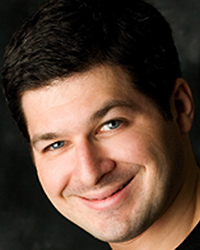2014 Janet Taylor Spence Award

Ethan F. Kross
University of Michigan
What is the focus of your award-winning research?
Although the emotions we experience usually serve an adaptive function, sometimes they take hold of us in ways that are harmful, interfering with how we ideally want to think, feel, and behave. These are the situations that fascinate me. Broadly speaking, my research aims to illuminate how people can manage their emotions under such circumstances. I adopt an integrative approach to address these issues that draws on multiple disciplines within psychology, including social, personality, clinical, developmental, and neuroscience.
How did you develop an interest in this area?
When I was an undergraduate, I learned about a paradox in the literature on self-reflection and coping. Whereas many studies indicated that it was helpful for people to “work through” their negative experiences, other studies indicated that people’s attempts to do this often led them to ruminate and feel worse. Putting these findings together, the challenge that emerged was to understand how people can reflect on negative experiences adaptively. This basic question triggered my broader interest in self-control.
Who are your mentors and/or biggest psychological influences?
I met my two greatest influences at Columbia University, where I earned my PhD. Walter Mischel took me under his wing when I arrived. He was and continues to be all that I could have hoped for in a mentor. From day one he encouraged me to ask big questions that have the potential to change the way we think about phenomena.
My other greatest influence was Ozlem Ayduk. Oz was completing the final year of her post doc when I started graduate school. We immediately began working together when I arrived, and we haven’t stopped. We think about problems just differently enough to make our partnership profitable and fun. Oz taught me about the ins and outs of performing research. She’s been my role model from the beginning.
I was fortunate to work with several other people at Columbia, including Geraldine Downey, Kevin Ochsner, Ed Smith, Tor Wager, Rudy Mendoza Denton, and Tory Higgins. Each of them, in his or her own way, shaped the way I think about research. Fortunately, mentoring doesn’t end when you leave graduate school. My current colleagues and collaborators — there are unfortunately too many to name — continue to influence my thinking, as have the students that I have had the privilege of working with.
What unique factors have contributed to your early success?
I think it boils down to three factors:
First, I’ve been lucky to work with a number of exceptional psychologists over the course of my career; forward-thinking mentors, colleagues, and students with razor-sharp minds who are passionate about their work. There’s something infectious about working with people who love what they do and do it well.
Second, I’ve worked in departments that I think are truly exceptional. Although the psychology programs at Columbia and Michigan differ in many ways, they share an important attribute — both emphasize the importance of asking questions that matter using whatever methods are necessary to address them. This ethos has guided me throughout my career.
Finally, I have a wonderfully supportive wife and family. Without their encouragement, I probably wouldn’t be in academia.
What does winning this award mean to you both personally and professionally?
Looking at the past recipients of this award is a humbling experience. The fact that this award is given to a researcher whose work cuts across multiple areas of psychology — something that I have tried to do throughout my career — makes it all the more meaningful, both personally and professionally.

